The wild scandal embroiling South Africa's president
A story of buffalo, thieves, and a cash-stuffed sofa

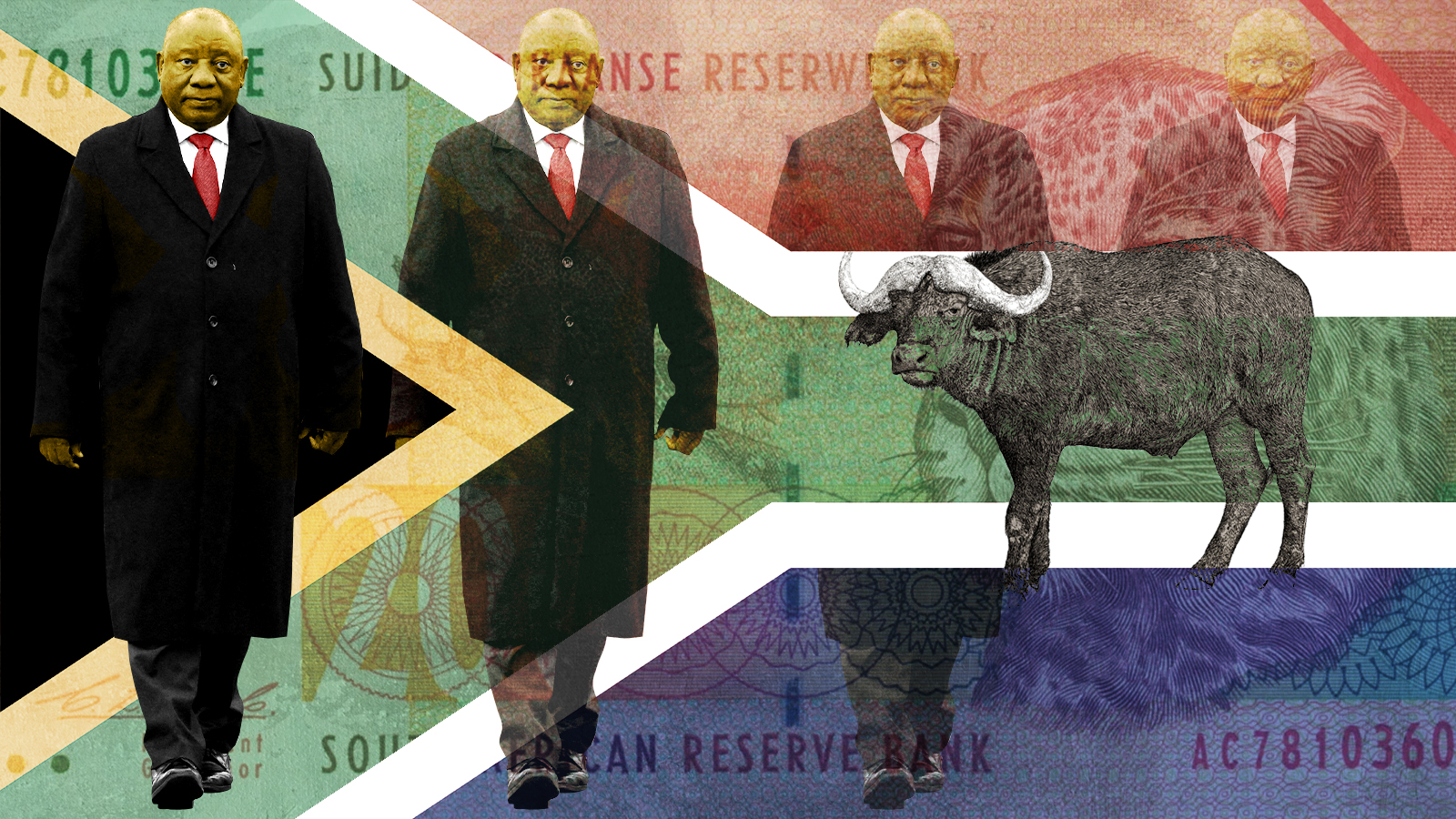
A free daily email with the biggest news stories of the day – and the best features from TheWeek.com
You are now subscribed
Your newsletter sign-up was successful
How did 20 buffalo, an elusive Sudanese businessman, and a cash-stuffed sofa lead to the potential impeachment of South African President Cyril Ramaphosa? Here's everything you need to know:
What's going on with Cyril Ramaphosa?
Until about six months ago, South African President Cyril Ramaphosa was almost entirely expected to hold onto his presidential position come Dec. 16, the date of the African National Congress (ANC) conference. The ANC is Ramaphosa's party, as well as South Africa's ruling party.
But everything changed in June 2022, when former South African spy chief Arthur Fraser released a surprising statement that alleged he had evidence, including "photographs, bank accounts, video footage, and names," showing that Ramaphosa broke a number of anti-corruption laws. Fraser also opened a criminal investigation against the president.
The Week
Escape your echo chamber. Get the facts behind the news, plus analysis from multiple perspectives.

Sign up for The Week's Free Newsletters
From our morning news briefing to a weekly Good News Newsletter, get the best of The Week delivered directly to your inbox.
From our morning news briefing to a weekly Good News Newsletter, get the best of The Week delivered directly to your inbox.
The news came as a shock to the South African people given that Ramaphosa specifically made fighting corruption a staple of his leadership. Following Fraser's statement, Ramaphosa addressed the ANC, saying, "I have never stolen money from anywhere. Be it from our taxpayers, be it from anyone. I have never done so."
Following the statement, an independent panel was put together to investigate Ramaphosa's alleged crimes. The panel released a report in November containing evidence that misconduct may indeed have occurred.
What specifically is the scandal about?
The story starts back in 2020 on Ramaphosa's game farm, Phala Phala, where thieves allegedly made off with millions of dollars, including over $500,000 in cash. The cash was, by Ramaphosa's own admission, stuffed inside a leather sofa.
The real problem is that Fraser says Ramaphosa failed to formally report the theft when it occurred, drawing suspicions about the source of Ramaphosa's missing money. Ramaphosa responded to Fraser's charges by claiming the cash was the "proceeds from selling" 20 "substandard" buffalo from his private buffalo farm to a Sudanese businessman in 2019. He also claimed that he was not present during the transaction and that the lodge manager of the farm hid the money in the sofa for safety reasons. Ramaphosa also said that the amount of money stolen was less than what Fraser said, and asserted that he did not attempt to cover up the burglary.
A free daily email with the biggest news stories of the day – and the best features from TheWeek.com
However, the panel found Ramaphosa's "account was marred by holes," The New York Times writes, including "lacking a clear explanation of who the Sudanese businessman was, why there was no written record of the sale, or whether he had ever collected the buffaloes he purchased." Additionally, the panel "determined that the evidence suggested that Mr. Ramaphosa had failed to report the foreign currency [from the transaction] to South Africa's central bank or pay taxes on it" and that "there was more foreign currency concealed in the sofa than the amount reflected in the acknowledgment of receipt" from Ramaphosa's alleged buffalo business deal.
While the source and amount of money are still under dispute, the panel's report further found "there was a deliberate intention not to investigate the commission of the crimes committed at Phala Phala openly." After the theft, Ramaphosa reported the crime to his protection team — "which is a branch of the police" — rather than the police department, nevertheless raising suspicions about why he didn't apparently want officials involved, writes The Economist.
The investigation also claimed that Ramaphosa may have used the help of Namibian President Hage Geingob to apprehend the thieves, who had fled the country, writing, "The president abused his position as head of state." Some allegations went so far as to claim that Ramaphosa used Namibian resources to torture and bribe the suspects, but this has not been confirmed, writes CNBC. In response, Geingob's office released a statement saying, "The presidency ... denies insinuations that President Geingob may have acted inappropriately and/or participated or abetted in the apprehension of the individuals concerned."
Ramaphosa is a multi-millionaire game farmer along with being president, which the report further says puts the president in a conflict of interest as it allegedly violates the constitutional ban on cabinet ministers undertaking "paid work."
What's next for Ramaphosa?
The National Assembly, or South Africa's parliament, met on Dec. 13 to discuss the findings of the report and decided against holding impeachment proceedings, Reuters reports. If proceedings were held, it would have been historic for the country since no prior president has ever been impeached. Instead, the ANC used its power to prevent the proceedings from moving forward.
Ramaphosa was also re-confirmed as head of the nation's leading party despite speculation that opponents would be "going for his head," in the words of said Bongani Ngqulunga, a politics teacher at the University of Johannesburg. The president beat his competitor former health minister Zweli Mkhize 57 percent to 43 percent cinching a second five-year term as ANC leader.
Ramaphosa has continued to deny any corruption and continues to push that he is tackling corruption as a top priority. "I have endeavored, throughout my tenure as president, not only to abide by my oath but to set an example of respect for the Constitution," he said. "I categorically deny that I have violated this oath in any way, and I similarly deny that I am guilty of any of the allegations made against me."
However, some experts say that Ramaphosa's pass doesn't mean he's off scot-free. "He will find it increasingly difficult to retain that corruption-busting credibility," said Daniel Silke, director of Political Futures Consultancy.
Updated Dec. 20, 2022: This piece has been updated to reflect the results of the National Assembly meeting.
Devika Rao has worked as a staff writer at The Week since 2022, covering science, the environment, climate and business. She previously worked as a policy associate for a nonprofit organization advocating for environmental action from a business perspective.
-
 Political cartoons for February 15
Political cartoons for February 15Cartoons Sunday's political cartoons include political ventriloquism, Europe in the middle, and more
-
 The broken water companies failing England and Wales
The broken water companies failing England and WalesExplainer With rising bills, deteriorating river health and a lack of investment, regulators face an uphill battle to stabilise the industry
-
 A thrilling foodie city in northern Japan
A thrilling foodie city in northern JapanThe Week Recommends The food scene here is ‘unspoilt’ and ‘fun’
-
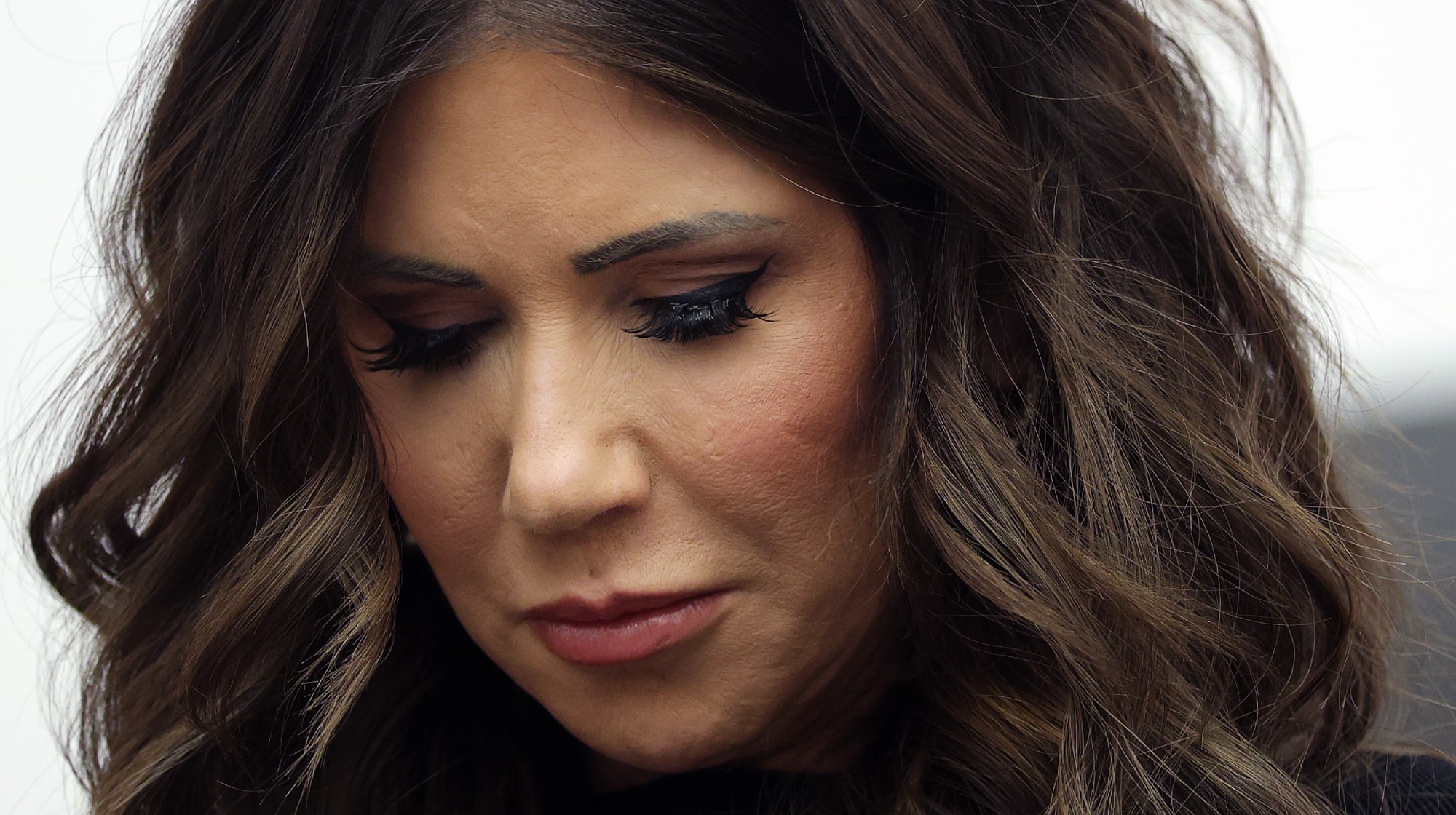 Democrats pledge Noem impeachment if not fired
Democrats pledge Noem impeachment if not firedSpeed Read Trump is publicly defending the Homeland Security secretary
-
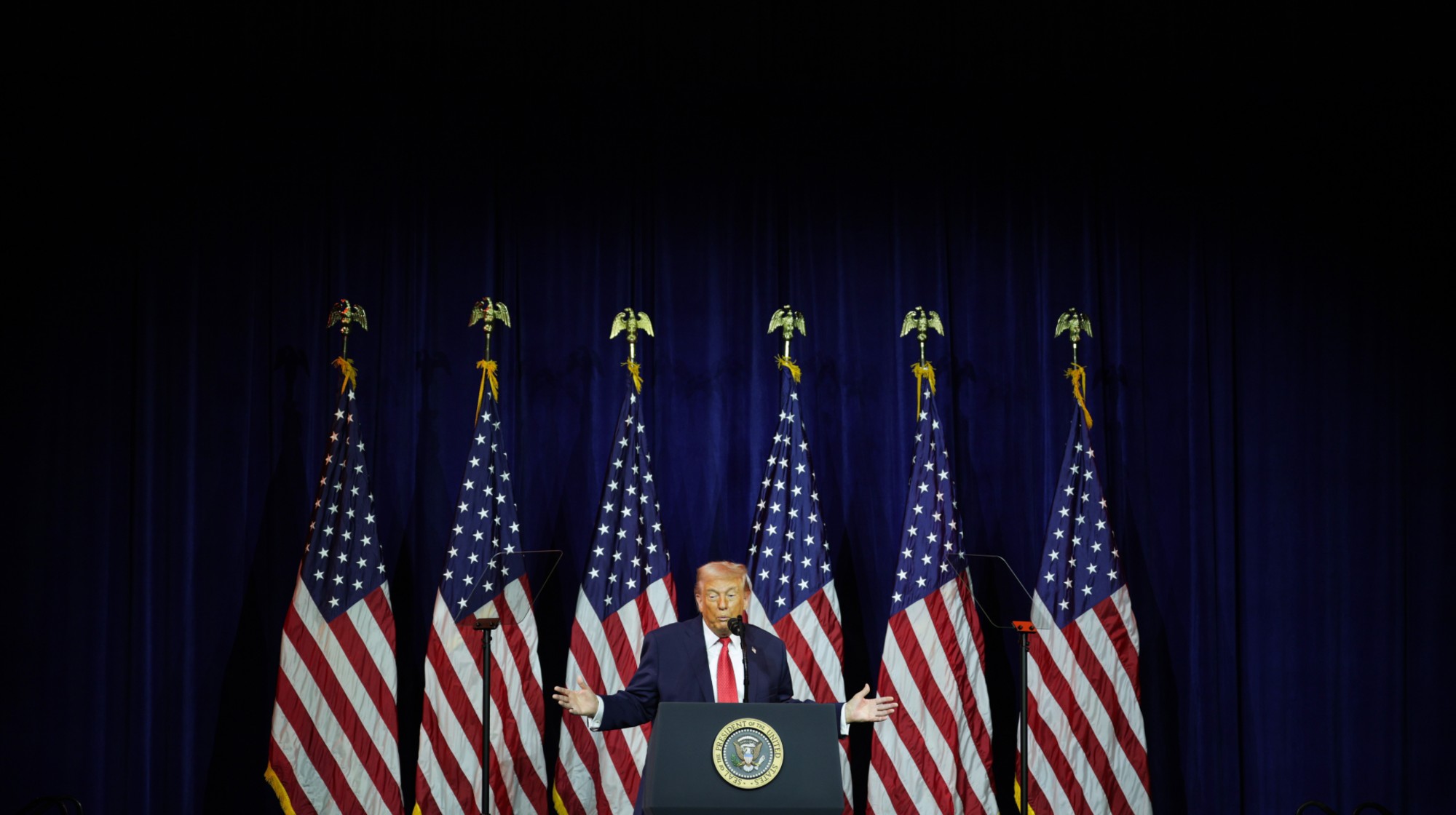 Trump fears impeachment if GOP loses midterms
Trump fears impeachment if GOP loses midtermsSpeed Read ‘You got to win the midterms,’ the president said
-
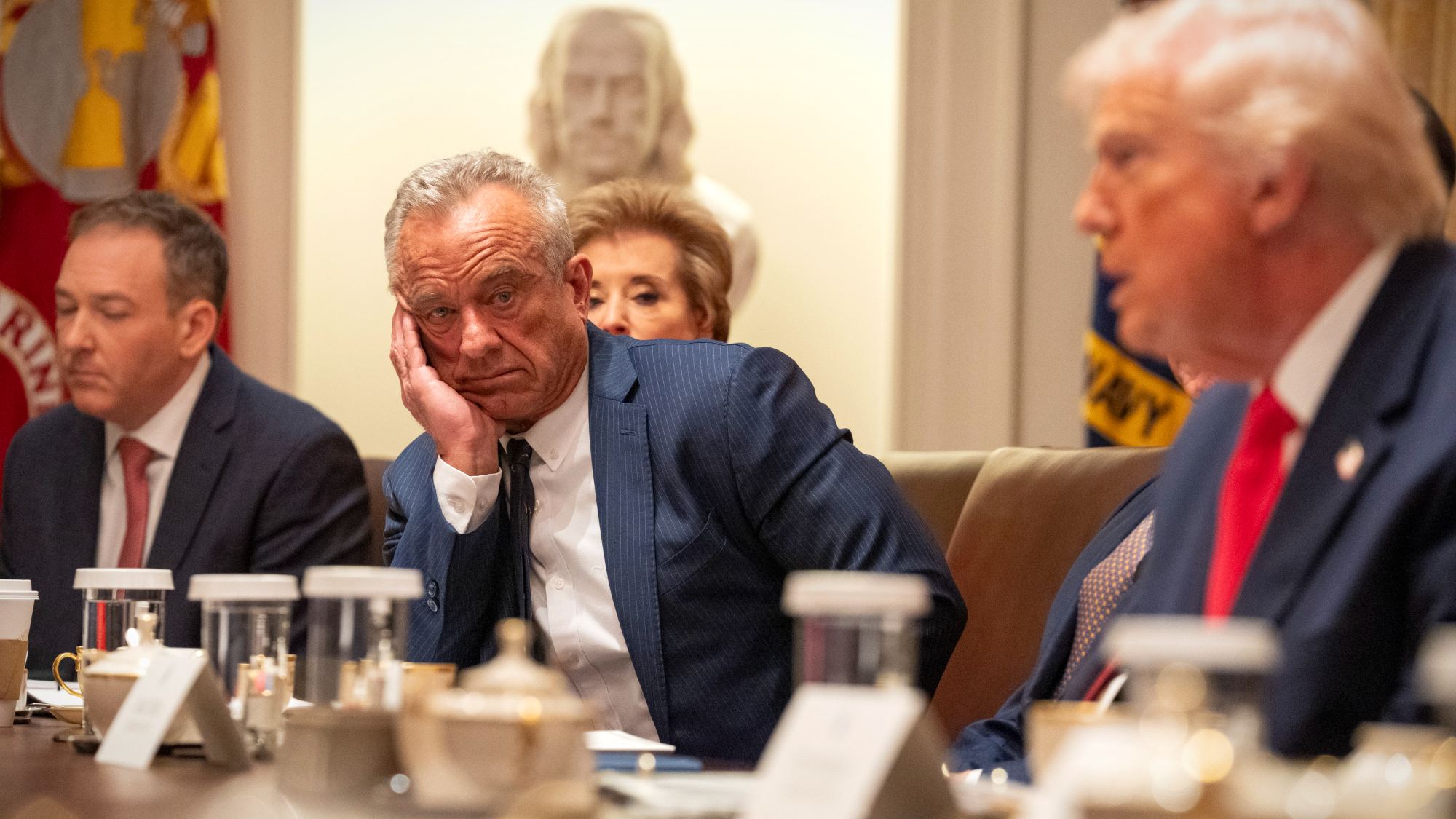 Democrat files to impeach RFK Jr.
Democrat files to impeach RFK Jr.Speed Read Rep. Haley Stevens filed articles of impeachment against Health and Human Services Secretary Robert F. Kennedy Jr.
-
 Trump limits refugees mostly to white South Africans
Trump limits refugees mostly to white South AfricansSpeed Read The administration is capping the number of refugees at 7,500
-
 Asylum: Only white Afrikaners need apply
Asylum: Only white Afrikaners need applyFeature Trump welcomes white Afrikaner farmers while shutting down the asylum program for non-white refugees
-
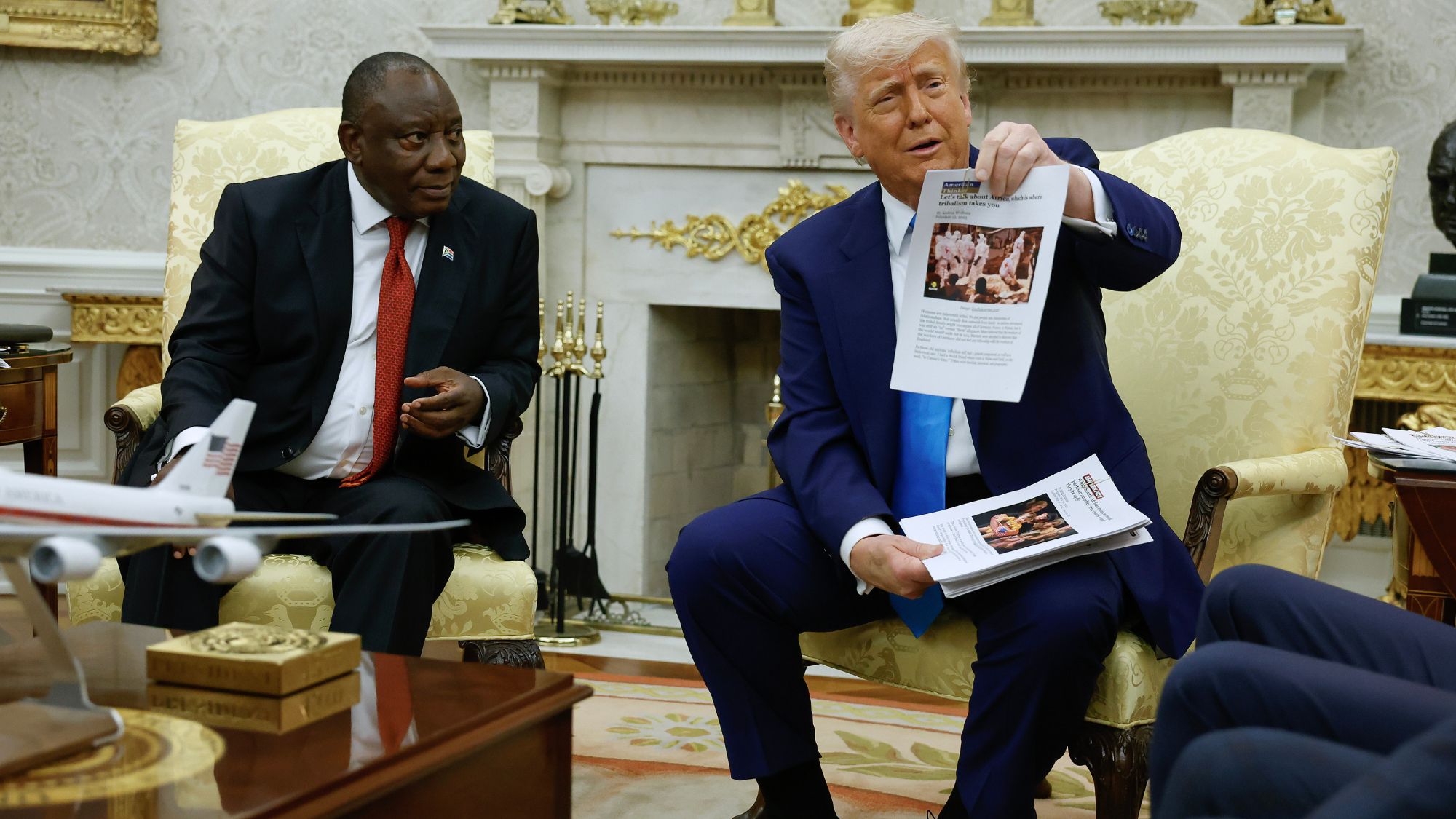 Trump lectures South Africa president on 'white genocide'
Trump lectures South Africa president on 'white genocide'speed read Trump has cut off aid to South Africa over his demonstrably false genocide claims
-
 White Afrikaners land in US as Trump-declared refugees
White Afrikaners land in US as Trump-declared refugeesspeed read An exception was made to Trump's near-total ban on admitting refugees for the white South Africans
-
 Why are white South Africans emigrating?
Why are white South Africans emigrating?The Explainer As the US welcomes Afrikaner refugees, the general exodus of South Africa's white population continues to grow
